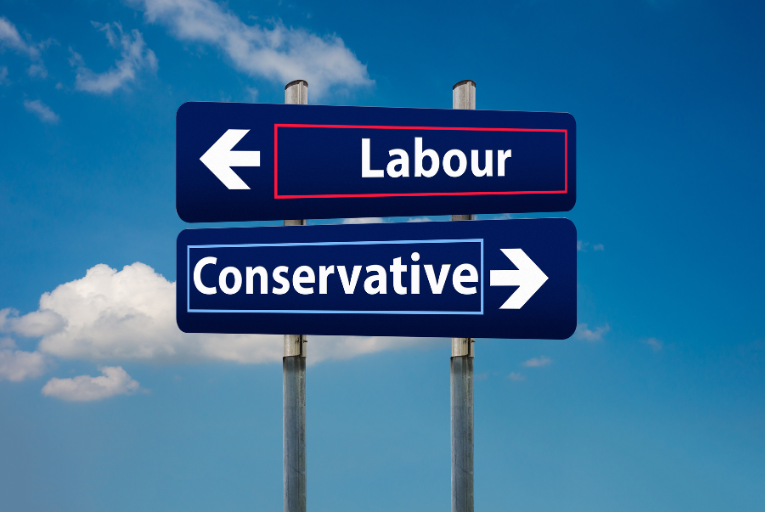A Labour Government: What might this mean for employment law in the UK?

A Labour Government: What might this mean for employment law in the UK?
The next general election in the UK must take place by January 2025 and opinion polls suggest that we could see a change in government for the first time in 14 years.
In preparation, the Labour Party have published its Green Paper entitled A New Deal for Working People which outlines the party’s proposals to reform current employment law. The Green Paper considers how Labour plans to address pay, job security, inequality, and discrimination. Some of the key proposals are set out below and a link to the full Green Paper can be found here.
- A single status of ‘worker’ will be created. Under current employment law, there are three categories of individuals providing their services in the job market: employee, worker, and self-employed. Labour plans to create a single status of ‘worker’ for all but the ‘genuinely self-employed’. All workers, regardless of sector, wage, or contract type, will have the same basic rights and protections including sick pay, parental leave, and protection against unfair dismissal without the need for a qualifying period of service.
- Plans to expand unfair dismissal protections. Under current employment law, only employees are protected from unfair dismissal, and they will usually need two years continuous service to bring a claim. Compensation for a successful claim is also capped to 52 weeks’ pay. Labour plans to scrap the qualifying period, remove the statutory caps which limit compensation, and extend the limitation periods in which employees can bring a claim.
- The amount of Statutory Sick Pay will be increased and will be available to all workers, including the self-employed and those on low wages.
- Ban zero hours contracts and contracts without a minimum number of guaranteed hours to ensure that anyone working regular hours for twelve weeks or more will gain a right to a regular contract.
- End of fire and rehire by improving information and consultation procedures. Labour also intends to adapt redundancy legislation and ensure that notice and ballot requirements on trade union activity do not inhibit defensive action. Labour believes this plan will protect terms and conditions of employment in situations where fire and rehire tactics are being implemented.
- Introduce the ‘right to switch off’. Workers will have a new right to disconnect from work outside of working hours and not be contacted by their employer outside of working hours. Labour will also introduce new rights to protect workers from remote surveillance.
- The national minimum wage will be raised immediately to £10 per hour for all workers. Labour will also ban unpaid internships except when they are part of an education or training course.
- Strengthening workplace rights by extending the time periods for bringing claims at Employment Tribunals. Labour also plans to introduce tougher penalties for those who break the law or fail to comply with tribunal orders, including personal liability for those that were directors of companies at the time. Caps which limit the amount of compensation that workers can receive will also be removed.
- Update trade union legislation and remove restrictions on trade union activity.
- Stronger family-friendly rights by extending statutory maternity and paternity leave and introducing the right to bereavement leave. Protections for pregnant women will also be strengthened by making it unlawful to dismiss a woman while pregnant or for six months after her return, except in specific circumstances.
- Tackle workplace harassment by requiring employers to create and maintain workplaces and working conditions free from harassment, including by third parties.
It remains to be seen whether Labour will be successful in the upcoming general election, but if they are, employment law as we know it is likely to change in a dramatic way. Both employers and employees should be mindful of how these proposals could impact on their roles in the workplace.
Contact our employment law solicitors
If you do have any questions on this or other employment and immigration matters please do not hesitate to contact the team on 0330 175 7617 or email employment@ibblaw.co.uk.
